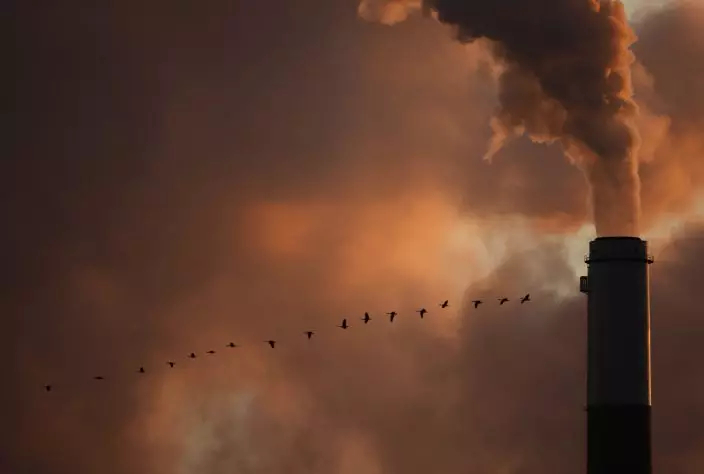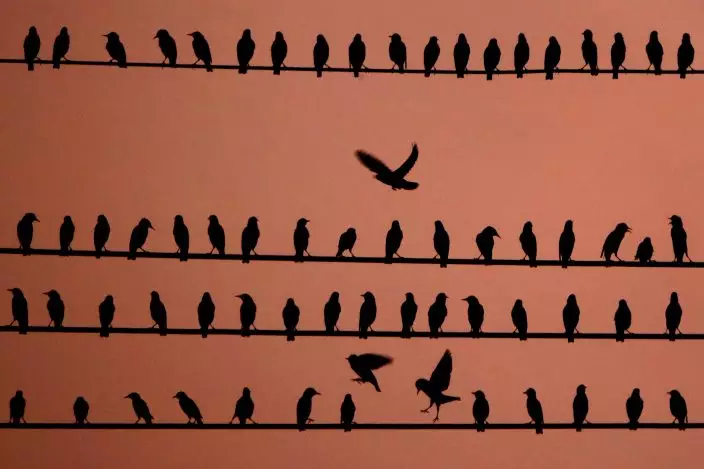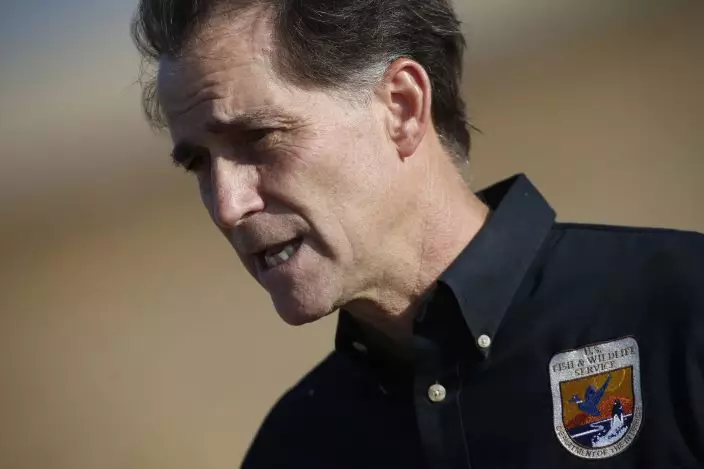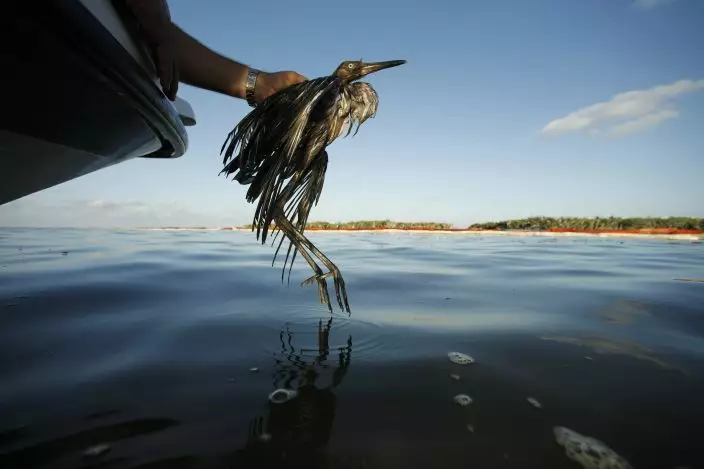The Trump administration on Tuesday finalized changes to a century-old law protecting most American wild bird species despite warnings that billions of birds could die as a result.
Federal wildlife officials have acknowledged the move could result in more deaths of birds that land in oil pits or collide with power lines or other structures.
A U.S. District Court judge in August had blocked the administration's prior attempt to change how the Migratory Bird Treaty Act is enforced. But urged on by industry groups, the Trump administration has remained adamant that the act has been wielded inappropriately for decades to penalize companies and other entities that kill birds accidentally.

FILE - In this Jan. 10, 2009, file photo, a flock of geese fly past a smokestack at a coal power plant near Emmitt, Kan. The Trump administration is moving to scale back criminal enforcement of a century-old law protecting most American wild bird species. The former director of the U.S. Fish and Wildlife Service told AP billions of birds could die if the government doesn't hold companies liable for accidental bird deaths. (AP PhotoCharlie Riedel, File)
Conservationists said they'll push President-elect Joe Biden to reverse the Interior Department rule, which blocks officials from bringing criminal charges unless birds are specifically targeted for death or injury.
More than 1,000 species are covered under the migratory bird law, and attempts to change the enforcement standards have drawn a sharp backlash from organizations that advocate on behalf of an estimated 46 million U.S. birdwatchers.
Former U.S. Fish and Wildlife Service Director Dan Ashe and independent scientists have said the change could cause a huge spike in bird deaths — potentially billions of birds in coming decades — at a time when species across North America already are in steep decline.

FILE- In this Sept. 24, 2017, file photo, birds vie for position on power lines at dusk in Kansas City, Kan. The Trump administration is moving to scale back criminal enforcement of a century-old law protecting most American wild bird species. The former director of the U.S. Fish and Wildlife Service told AP billions of birds could die if the government doesn't hold companies liable for accidental bird deaths. (AP PhotoCharlie Riedel, File)
Industry sources kill an estimated 450 million to 1.1 billion birds annually, out of an overall 7.2 billion birds in North America, according to the U.S. Fish and Wildlife Service and recent studies.
The 1918 migratory bird law came after many U.S. bird populations had been decimated by hunting and poaching — much of it for feathers for women’s hats.
U.S. Fish and Wildlife officials said the latest proposal was meant to match up with a 2017 legal decision that effectively ended criminal enforcement under the act during most of Trump’s presidency.

FILE - In this Oct. 5, 2015, file photo, Dan Ashe, then-director of the U.S. Fish and Wildlife Service, talks following an animal release at the Rocky Mountain Arsenal National Wildlife Refuge in Commerce City, Colo. Former U.S. Fish and Wildlife Service Director Ashe told The Associated Press that the Migratory Bird Treaty Act's threat of prosecution served as "a brake on industry" that had saved probably billions of birds. (AP PhotoDavid Zalubowski, File)
The highest-profile enforcement case bought under the migratory bird act resulted in a $100 million settlement by BP, after the Gulf of Mexico oil spill in 2010 killed approximately 100,000 birds.
Over the decades, federal courts have been split on whether companies can be prosecuted under the migratory bird law, with appeals courts ruling in favor of industry three times and siding against companies twice.
Follow Matthew Brown on Twitter:@matthewbrownap

FILE - In this June 26, 2010 file photo, Plaquemines Parish Coastal Zone Director P.J. Hahn rescues a heavily oiled bird from the waters of Barataria Bay, La. The Trump administration wants to end the criminal penalties under the Migratory Bird Treaty Act to pressure companies into taking measures to prevent unintentional bird deaths. Critics including top Interior Department officials from Republican and Democratic administrations say the proposed change could devastate threatened and endangered species and accelerate a bird population decline across North America since the 1970s. (AP PhotoGerald Herbert, File)


